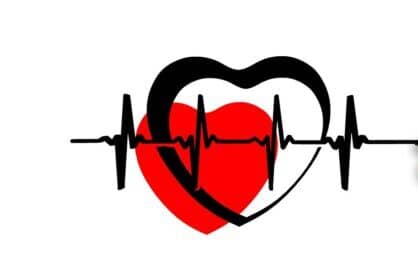Table of Contents:
Men's Health

6 Essential Tips for a Healthy Lifestyle, Diet, and Fitness
Achieving optimal men’s health is more than just hitting the gym or following the latest fad diet. For men, maintaining overall well-being requires a holistic approach that integrates fitness, nutrition, mental health, and routine check-ups. Here are six essential tips to help men stay healthy:
Exercise Regularly
Physical activity is fundamental for maintaining both physical and mental health. Men should aim for at least 150 minutes of moderate-intensity aerobic exercise weekly, along with two or more strength-training sessions. This combination promotes muscle strength, cardiovascular health, and can reduce the risk of chronic diseases like diabetes and heart disease.Maintain a Balanced Diet
A nutritious, well-rounded diet is vital for sustaining energy, maintaining a healthy weight, and reducing the risk of disease. Focus on incorporating lean proteins, whole grains, healthy fats, and a variety of fruits and vegetables. Avoid excessive intake of processed foods, sugars, and unhealthy fats that can lead to health issues over time.Prioritize Sleep
Quality sleep is often overlooked, but it plays a crucial role in overall men’s health. Men should aim for 7-9 hours of restful sleep each night. Adequate sleep supports cognitive function, emotional well-being, and muscle recovery after physical activity.Stay Hydrated
Proper hydration is key to maintaining energy levels, aiding digestion, and supporting the body’s vital functions. Men should aim to drink about 3.7 liters (or 13 cups) of fluids daily, mainly from water. Hydration needs may vary based on activity level and climate.Manage Stress
Chronic stress can take a serious toll on both physical and mental health. Practicing mindfulness, engaging in relaxation techniques like meditation or yoga, and making time for hobbies can help men manage stress levels effectively.Regular Health Screenings
Preventive care is essential for catching potential men’s health issues early. Men should schedule routine health screenings to monitor blood pressure, cholesterol levels, prostate health, and more. These screenings help detect issues before they become more severe.

The Power of a Balanced Diet
A healthy lifestyle is built on three critical pillars: diet, exercise, and regular health screenings. Diet and exercise work hand-in-hand to prevent chronic diseases and maintain physical fitness. Regular screenings, meanwhile, serve as a preventive measure to identify and address health concerns early.
Diet: A healthy diet provides the body with the nutrients it needs to function optimally. Proper nutrition lowers the risk of heart disease, diabetes, and obesity.
Exercise: Engaging in regular physical activity helps maintain weight, improves cardiovascular health, strengthens muscles, and enhances mental well-being.
Men’s Health Screenings: Regular check-ups with a healthcare professional can detect conditions like high blood pressure, diabetes, and prostate cancer early, increasing the chances of successful treatment.
A balanced diet is fundamental to good health. The body requires a variety of nutrients to function effectively, and the best way to ensure you’re getting everything you need is by eating a diverse range of foods.
Protein: Essential for muscle repair and immune health, lean proteins like chicken, fish, and legumes should be part of every meal.
Healthy Fats: Incorporating fats from sources like avocados, nuts, and olive oil supports brain health and hormonal balance.
Carbohydrates: Whole grains, fruits, and vegetables provide essential energy for daily activities and workouts.
A balanced diet can also prevent nutritional deficiencies, promote a healthy weight, and reduce the risk of chronic diseases.

Regular exercise is a cornerstone of men’s health. Physical activity supports cardiovascular health, improves muscle strength, and enhances flexibility and endurance. Exercise also promotes mental well-being, reducing symptoms of anxiety, depression, and stress.
Cardiovascular Health: Aerobic exercises like running, swimming, or cycling boost heart and lung function, improving endurance and reducing the risk of heart disease.
Muscle Strength: Strength training exercises, such as weight lifting or bodyweight exercises, help maintain muscle mass, which naturally declines with age.
Mental Health: Exercise releases endorphins, which improve mood and reduce feelings of anxiety and depression and is crucial to men’s health.

The Importance of Health Screenings
Preventive health screenings are critical for early detection of potential health problems. Regular screenings allow men to monitor important health markers, such as cholesterol levels, blood pressure, and blood sugar, which are indicators of heart disease, diabetes, and other serious conditions.
Prostate Health: Prostate cancer is one of the most common cancers in men, so regular prostate screenings are essential, particularly for men over the age of 50.
Blood Pressure: High blood pressure often has no symptoms, making regular monitoring important to avoid complications like stroke or heart attack. Screenings ensure early detection, which can make treatment more effective and less invasive.

Mental health is as important as physical health. Men are often under pressure from work, family responsibilities, and societal expectations, which can lead to stress, anxiety, and depression. Managing mental health requires a proactive approach for men’s health.
Mindfulness Practices: Techniques like meditation and deep breathing can help reduce stress and improve focus.
Physical Activity: Regular exercise is not only good for the body but also helps reduce stress and improve mental clarity.
Social Connections: Maintaining strong relationships with friends and family provides emotional support, which is crucial for mental well-being .Seeking professional help when feeling overwhelmed or depressed is also an important step in maintaining mental health.

Making Healthy Choices
Good health is a result of consistent, healthy choices. Small daily habits, like choosing nutritious foods, staying active, and managing stress, contribute to long-term well-being. Prioritizing sleep, staying hydrated, and avoiding unhealthy habits such as smoking or excessive drinking further enhance overall men’s health.
Incorporating these lifestyle changes can lead to a longer, healthier, and more fulfilling life. Men’s health is about making informed, proactive decisions that support both the body and mind.

Erectile dysfunction is a treatable condition, but it often signals deeper health issues that need attention. By addressing both the physical and psychological aspects of ED, many men can regain their sexual function and improve their quality of life. If you are experiencing ED, it’s important to consult a healthcare provider to discuss your symptoms and determine the best course of action.

The prostate is a walnut-sized gland located below the bladder and in front of the rectum. Its main function is to produce fluid that nourishes and transports sperm during ejaculation. Prostate cancer develops when cells in this gland mutate and grow abnormally. In most cases, prostate cancer grows slowly, and many men with the disease live for years without any issues. However, in more aggressive forms, the cancer can spread to other parts of the body, such as bones or lymph nodes, requiring urgent medical attention.
